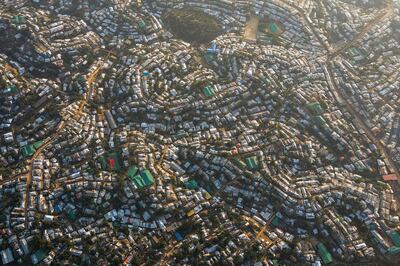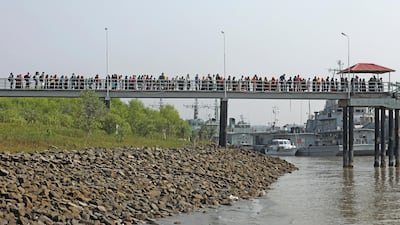Recent years have not been good to refugees. The UNHCR, the UN refugee agency, estimates current numbers at 26 million. In the Middle East and the West, people most often see images of the crisis unfolding in the Mediterranean. The Rohingya crisis, currently playing out in Myanmar and Bangladesh, seems more distant. But it is no less tragic.
In August 2017, after a military crackdown, an estimated 750,000 Rohingya Muslims, a minority group in Myanmar, fled to neighbouring Bangladesh. There are now just under one million refugees in camps around the town of Cox’s Bazar, on the south-eastern coast of the country.
Bangladesh, a nation with many economic challenges of its own, has shown remarkable compassion in accommodating this wave of migration. But the situation around Cox’s Bazar is unsustainable.

To alleviate the crisis, the Bangladeshi government has prepared Bhasan Char, a silt island that emerged after a dredging project, for habitation.
The government aims to relocate 100,000 Rohingya refugees there. Last Thursday, the Bangladeshi navy took the first round of 1,500 inhabitants to the island.
Various international bodies have expressed concern about the plan, however. The government says relocations will be voluntary but the UN says Rohingya are “distressed” at the proposals, and some say refugees are under pressured to move. It said life on the island must include rights, essential services, freedom of movement and jobs. Providing this on an uninhabited island will be difficult.
The correct long-term solution is a right of return for Rohingya refugees to their homelands in Myanmar. The current political situation there makes this unlikely any time soon.
However, an opportunity for a solution might be emerging. Aung San Suu Kyi's National League of Democracy party won parliamentary elections in November. Although she must still share power with the military, with the dust of the elections having settled, Ms Suu Kyi is likely to have the political capital to make amends to the Rohingya refugees who want to return but fear for their safety upon doing so.
So far, international calls for a solution to the crisis have been ineffective. But US President-elect Joe Biden, who was an integral part of the Obama administration that was largely responsible for efforts to open up Myanmar in 2009, should revisit the issue and push for refugee rights. Mr Biden has, after all, promised to make human rights the centre-piece of US foreign policy when he becomes president.
International criticism of Ms Suu Kyi’s record in office often focuses on the fact she had previously been lauded as an advocate for peace. Many years of campaigning against military dictatorship forced her into house arrest for 15 years. This won her the Nobel Peace Prize in 1991.
It is hard to govern a country that had been isolated and under authoritarian rule for decades. But no context justifies the creation of yet another refugee crisis. Ms Suu Kyi could quickly regain international respect by pursuing a long-term solution for the Rohingya. By doing this, she could recapture the spirit of her peace prize. She could also win the rare accolade in today’s world of being a leader prepared seize the initiative on refugee rights.
Most importantly, the Rohingya will have the chance to return to the place they have for centuries called home.


